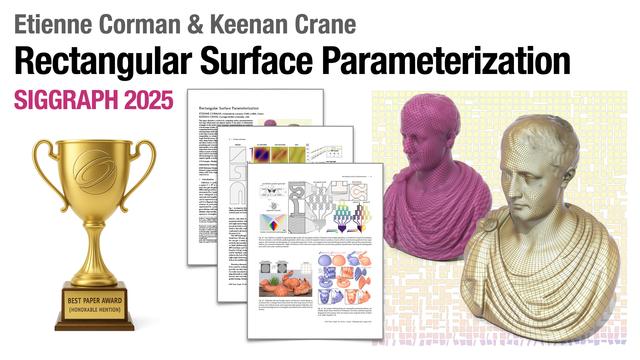@regehr @geofflangdale @rygorous @harold @camelcdr @steve "Matters Computational" is free and covers some territory. https://www.jjj.de/fxt/fxtbook.pdf
jack of no trades
@fanf Yeah. If you didn't notice there's a github repo for it.
I find this interesting. Our 14 yo picked-up and played through Clair Obscur early on. Now his "taste" in music the past couple of years has been the standard pre/early teen fare of "current pop". However the "Clair Obscur" soundtrack has been added and stayed in his playlist.
@SoufianeKHIAT TIL and LOL! What?
@dysfun @regehr Yeah. The calculator page (1) will express in terms of PEXT (& PDEP)
1) https://programming.sirrida.de/calcperm.php
EDIT: What I intended to say if the "best" it finds is SAG...it's say so and show it implemented using a pair of PEXT and a shift.
Choose a reasonable generic length and any longer expansions can choose a larger POT or custom one close to the actual length needed.
1) https://github.com/pfultz2/Cloak/wiki/Is-the-C-preprocessor-Turing-complete%3F
2) https://www.scs.stanford.edu/~dm/blog/va-opt.html
I mentioned the C macro crime of Fultz's rescan (1) and Mazières' map (2) yesterday.
I guess I'm a bit slow on the uptake but it occurred to me that if the "tree" of expansions is two per level then that gives 2^p for a given level.
Now we can addition chain a desired exponent (by nesting POT levels) to hit any desired number of expansions.
Then for each "map, through, etc." like operation create a base version that takes a given expansion and voilà!
@harold FWIW: I've been (luke warm) wanting to work my way thorough this person's work on non-packrat parsing. But I'm attempt to keep my brain away from all things that might tempt me to write a PL or DSL. Well and parser combinators exist.
EDIT: he has a java implementation based on his work here: https://romanredz.se/Mouse/index.htm
@DirtyPunk @demofox For a simple language I'd probably run with a parser combinator. I haven't used it but one by @orangeduck looks quite nice:
Ran across a one-person C compiler that looks (from a quick skim) pretty impressive.
@lritter pssst! (looks arounds) "Hey buddy...you looking to score some C macro crimes?"
FWIW: There's David Mazières' modernized X macro which behaves like a Map (1). He gives an example of augmenting an enum. And I have a hacked version that can thread common data across a map (2):
F,(A,B),0,1,... → F(A,B,0) F(A,B,1) ...
1) https://www.scs.stanford.edu/~dm/blog/va-opt.html
2) SFH_MAP_PEEL in https://github.com/Marc-B-Reynolds/Stand-alone-junk/blob/master/src/SFH/sfh_macro.h
and SFH_SMAP_PEEL is a lighter weight example version limited to 8 or less length list.
@steve @neilhenning Not near Playa by some weird chance? See a dude I've known since I was a kid just left today and I had a couple of food ideas he couldn't take advantage of.
@mkretz Having sqrt(-1) = NaN would be not nice to use. You'd have to write sqrt(x+0) all the time.
Very happy to receive a SIGGRAPH 2025 Best Paper Award (Honorable Mention) for our RSP algorithm, which dices surfaces into near-perfect rectangles.
Such meshes are useful for everything from retopology, to microfluidic simulation, to textile design, to architectural geometry.
I'll post more about RSP in the coming weeks, but for now you can check out the paper here: https://members.loria.fr/ECorman/Papers/RectangularSurfaceParameterization.pdf
This is work with my long-time collaborator Etienne Corman: https://members.loria.fr/ECorman/
The full list of award winners is here: https://blog.siggraph.org/2025/06/siggraph-2025-technical-papers-awards-best-papers-honorable-mentions-and-test-of-time.html/
Enjoy!
@tommythorn @rygorous @pervognsen @Doomed_Daniel Posits are a scam and fake science.
https://marc-b-reynolds.github.io/math/2019/02/06/Posit1.html
@fanf Right. But they aren't "mandated" to be correctly rounded...unless I've always read this wrong.
